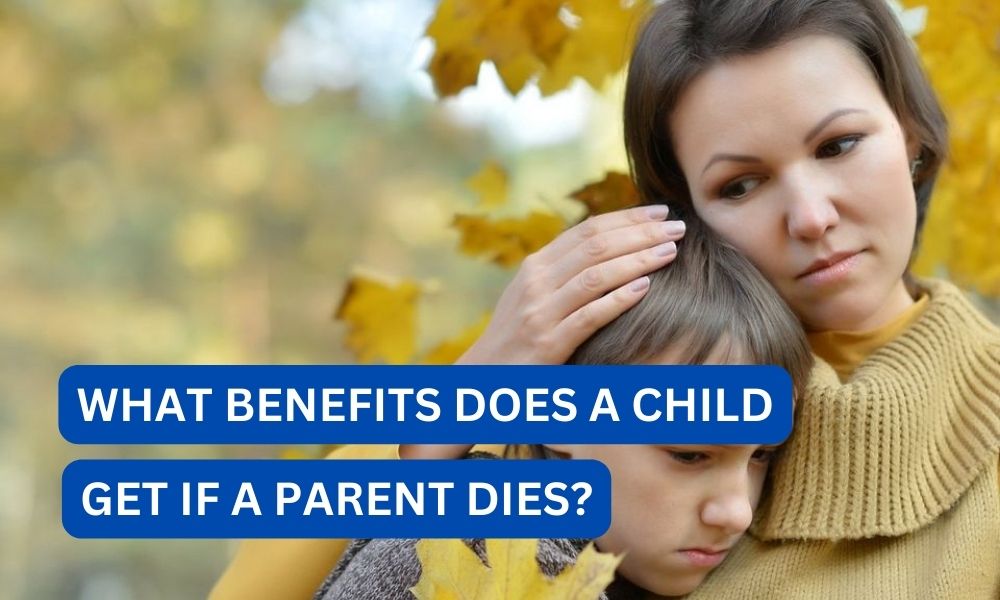The loss of a parent is a devastating experience for any child. It is a life-changing event that can have a profound impact on a child’s emotional, psychological, and social well-being. Losing a parent is a traumatic experience that can leave a child feeling lost, confused, and overwhelmed. However, amidst the pain and grief, there are also some unexpected benefits that a child can gain from the loss of a parent. In this article, we will explore the various benefits that a child can get if a parent dies and how they can help in their overall development.
Contents
Understanding Grief and Loss
Grief is a natural response to loss, and it is a complex and individual experience. It is a process that involves a range of emotions, including sadness, anger, guilt, and loneliness. When a child loses a parent, they may experience these emotions in different ways and at different times. The intensity and duration of grief can vary depending on the child’s age, their relationship with the parent, and the circumstances of the death.
Children may also have a hard time understanding the concept of death, especially if they are young. They may have questions about where their parent has gone and why they can’t come back. It is essential for adults to provide age-appropriate explanations and support to help children cope with their loss.
Read:What to do when unemployment benefits are exhausted california?The Benefits of Losing a Parent
While the loss of a parent is undoubtedly a tragic event, there are some unexpected benefits that a child can gain from this experience. These benefits may not erase the pain of losing a parent, but they can help a child cope and grow in the face of adversity.
1. Resilience and Coping Skills
The death of a parent can be a significant source of stress for a child. However, it can also be an opportunity for them to develop resilience and coping skills. Resilience is the ability to bounce back from difficult situations and adapt to change. When a child loses a parent, they are forced to face a new reality and learn to navigate life without their loved one. This experience can help them develop resilience and learn how to cope with challenges in the future.
According to a study by the American Psychological Association, children who experience the loss of a parent at a young age are more likely to develop resilience and coping skills compared to their peers who have not experienced such a loss. They learn to rely on their own strengths and resources to overcome adversity, which can help them in various aspects of their lives, including academics, relationships, and career.
Read:Is friends with benefits a good idea?2. Appreciation for Life
The death of a parent can also make a child more aware of the fragility of life and the importance of cherishing every moment. Losing a parent can be a wake-up call for a child, making them realize that life is precious and can be taken away at any moment. This experience can help them appreciate the people and things they have in their lives and not take them for granted.
For example, a child who has lost a parent may be more grateful for the time they spend with their remaining parent, siblings, and other family members. They may also learn to value their own life and make the most out of it, knowing that it can be cut short at any time.
3. Empathy and Compassion
The death of a parent can also help a child develop empathy and compassion towards others. Losing a parent can be a traumatic experience, and it can make a child more sensitive to the pain and suffering of others. They may be able to relate to others who have experienced loss and offer them comfort and support.
Moreover, children who have lost a parent may also be more understanding and compassionate towards their peers who are going through difficult times. They may be able to offer a unique perspective and provide emotional support to their friends who are struggling with their own challenges.
Read:when to apply for social security benefits at age 624. Independence and Self-Reliance
The death of a parent can also lead to a child becoming more independent and self-reliant. When a parent dies, the child may have to take on new responsibilities and learn to do things on their own. This experience can help them develop a sense of independence and self-reliance, which can be beneficial in their personal and professional lives.
For example, a child who has lost a parent may have to take on household chores, such as cooking and cleaning, or take care of younger siblings. These responsibilities can help them develop practical skills and a sense of responsibility, which can be valuable in their future endeavors.
5. Stronger Family Bonds
The death of a parent can also bring a family closer together. When a parent dies, the remaining family members may find comfort and support in each other. They may also become more aware of the importance of family and make an effort to spend more time together.
Moreover, the loss of a parent can also lead to open and honest communication within the family. Children may feel more comfortable expressing their feelings and thoughts, and parents may become more attentive to their children’s needs. This can help strengthen family bonds and create a supportive and loving environment for the child to grow and thrive.
Case Study: The Benefits of Losing a Parent
One example of the benefits a child can gain from losing a parent is the story of J.K. Rowling, the author of the Harry Potter series. Rowling lost her mother to multiple sclerosis when she was only 25 years old. This experience had a profound impact on her life and her writing. In an interview with Oprah Winfrey, Rowling said, “I think it taught me a lot about self-reliance because it was a very lonely time. I think it also taught me that I really had to go inside myself and find my own strength because I couldn’t rely on anyone else.” Losing her mother also inspired her to create the character of Harry Potter, who also lost his parents at a young age and had to rely on his own strength and resilience to overcome challenges.
Conclusion:
The loss of a parent is a tragic event that can have a profound impact on a child’s life. It can be a source of immense pain and grief, but it can also bring unexpected benefits. Losing a parent can help a child develop resilience, coping skills, empathy, and independence. It can also lead to stronger family bonds and a greater appreciation for life. While these benefits may not erase the pain of losing a parent, they can help a child cope and grow in the face of adversity.
As adults, it is essential to provide support and guidance to children who have lost a parent. We must acknowledge their feelings and help them understand and cope with their loss. With love, understanding, and support, children can overcome the challenges of losing a parent and emerge stronger and more resilient individuals.









